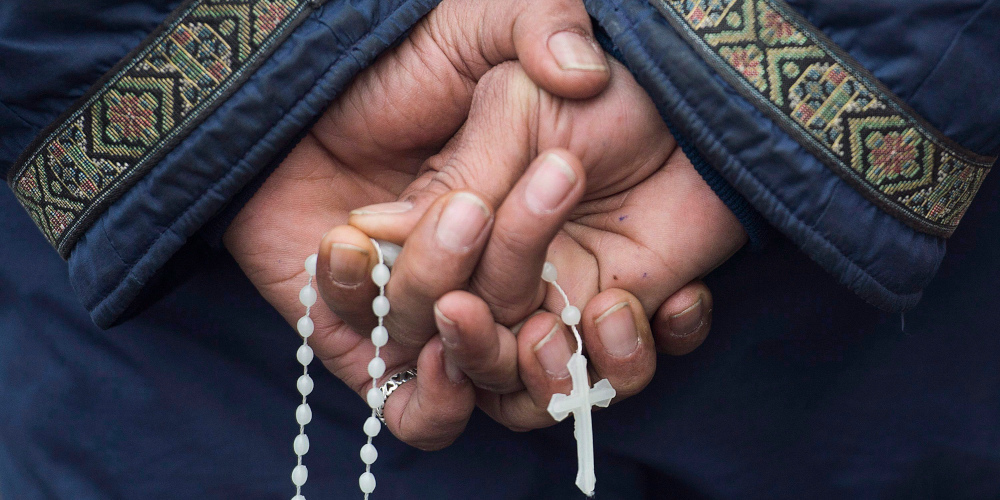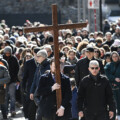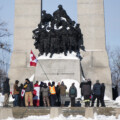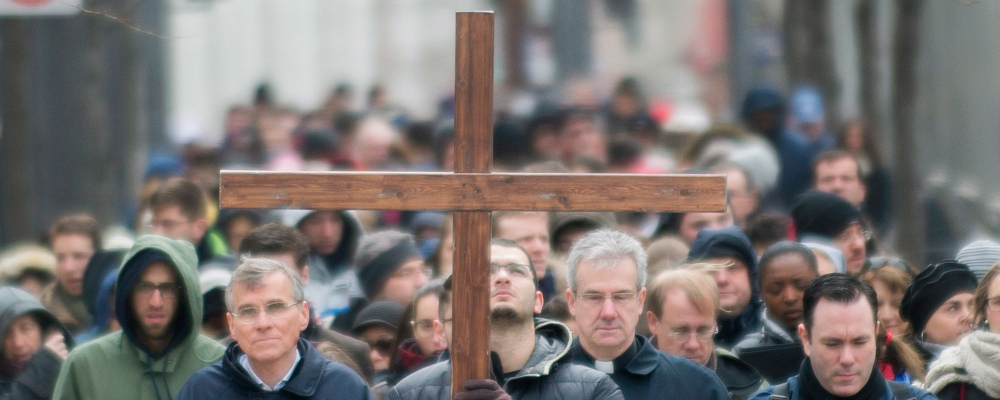It’s Holy Week. For centuries, Christians have recalled the historical events surrounding the death and resurrection of Jesus of Nazareth with special services, liturgies, and various other rituals. In most Western countries, the day is a statutory holiday. Contemporary Canada confines religion, to the extent it exists, to the private and personal, minimizing any public consequences of religion.
However, seeing the big picture about religious faith in Canada can take away some of the “strangeness” of religion and is a necessary part of understanding our neighbours better. This is needed to navigate the deep disagreements that mark our polarized times.
More “sacred stuff” still happens than most realize, as this week’s Angus Reid Institute survey in partnership with Cardus reminds us. Six in 10 Canadians believe in life after death—a figure that has held steady at least since the 1960s. And, speaking of Easter, 36 percent of Canadians agree that “the resurrection of Jesus Christ is a historical event that actually occurred in the first century,” while previous surveys have confirmed that 61 percent of Canadians still agree that “God or a higher being exists.”

True, Canadians’ group religious participation is trending downward. But that doesn’t stop one in five Canadians from praying daily. In fact, only 32 percent say they “never pray.” Logically, God must be real enough to around 70 percent of us that we at least try to talk to him. Religious activities, including prayer, can seem weird and quaint if we define reality only by our five senses. Yet most of us don’t really limit ourselves that way. It’s pretty clear there are religious muscles in most of our bodies, even if we’re somewhat inconsistent in exercising them and not that comfortable talking about them.
For Christians, (which is the religion box two out of three Canadians tick in the census,) Good Friday is the day marking the first-century crucifixion of Jesus of Nazareth. It would seem strange to label this “good” except that Christians believe Jesus was no ordinary man but in fact God himself taking on human nature. The ultimate evidence of this God-man is that although Jesus was crucified and buried on that Friday roughly 2,000 years ago, the following Sunday morning the tomb in which he was buried was found empty and his disciples saw him alive. Christianity holds that Jesus’ resurrection made eternal life with God possible for humanity.
For many, such religious expressions feel like out-of-place theological chatter. Relatively few can explain the core faith understandings of their neighbours, Christian or otherwise. Sadly, religion has been reduced to an identity or cultural background that we often see negatively. Some of that is surely a factor in the frequent vandalism and destruction of Canadian mosques, synagogues, and churches. Even so, the House of Commons could not bring itself to condemn arson attacks at more than 80 Christian churches in the last year. Meanwhile, there are 5 percent of Canadians who identify as Muslim, 2.3 percent Hindu, and 2.1 percent Sikh, and 1.4 percent Jewish who report similar experiences. All faiths are seeing increased hostility. Part of that hostility comes from not taking the time to gain even an elementary understanding of what our neighbours believe.

Yet religious belief has personal implications. If the majority who believe in an afterlife are correct (and I count myself among them), the consequences are significant. But it also has public consequences. Religion provides us with a framework and categories for dealing with the realities of good and evil, justice and virtue, forgiveness and trust. Ultimately, the core religious questions help us answer what it means to be human. Our answers to this question matter for how we live and die as individuals as well as how we live together in society.
The legacy of religious holidays and the opportunity it provides for an increased religious literacy is part of the process by which we can obtain a shared public vocabulary of some important things. You don’t have to be among those who believe in the resurrection of Jesus Christ to try to understand why it is that some do, what the “good” in “Good Friday” actually represents, and how concepts like justice, grace, and forgiveness gain meaning from Easter.
These may be increasingly secular and polarized times, but that doesn’t eliminate the need to deal with foundational questions and concepts as we live alongside each other. Insofar as these days help us maintain a literacy and shared vocabulary about ultimate questions, they have value well beyond a paid day off.
Recommended for You

Should Israel support a two-state solution? The Munk Debates prove open discussion is still possible

‘This is going to get very messy’: Will Canada drop religious protections from its hate speech laws?

The question is not whether liberty should be ordered, but how

Literacy, reason, and childhood matter—and we’re losing all three



